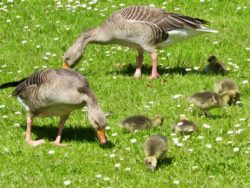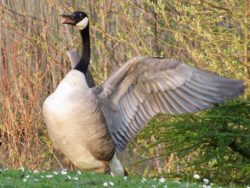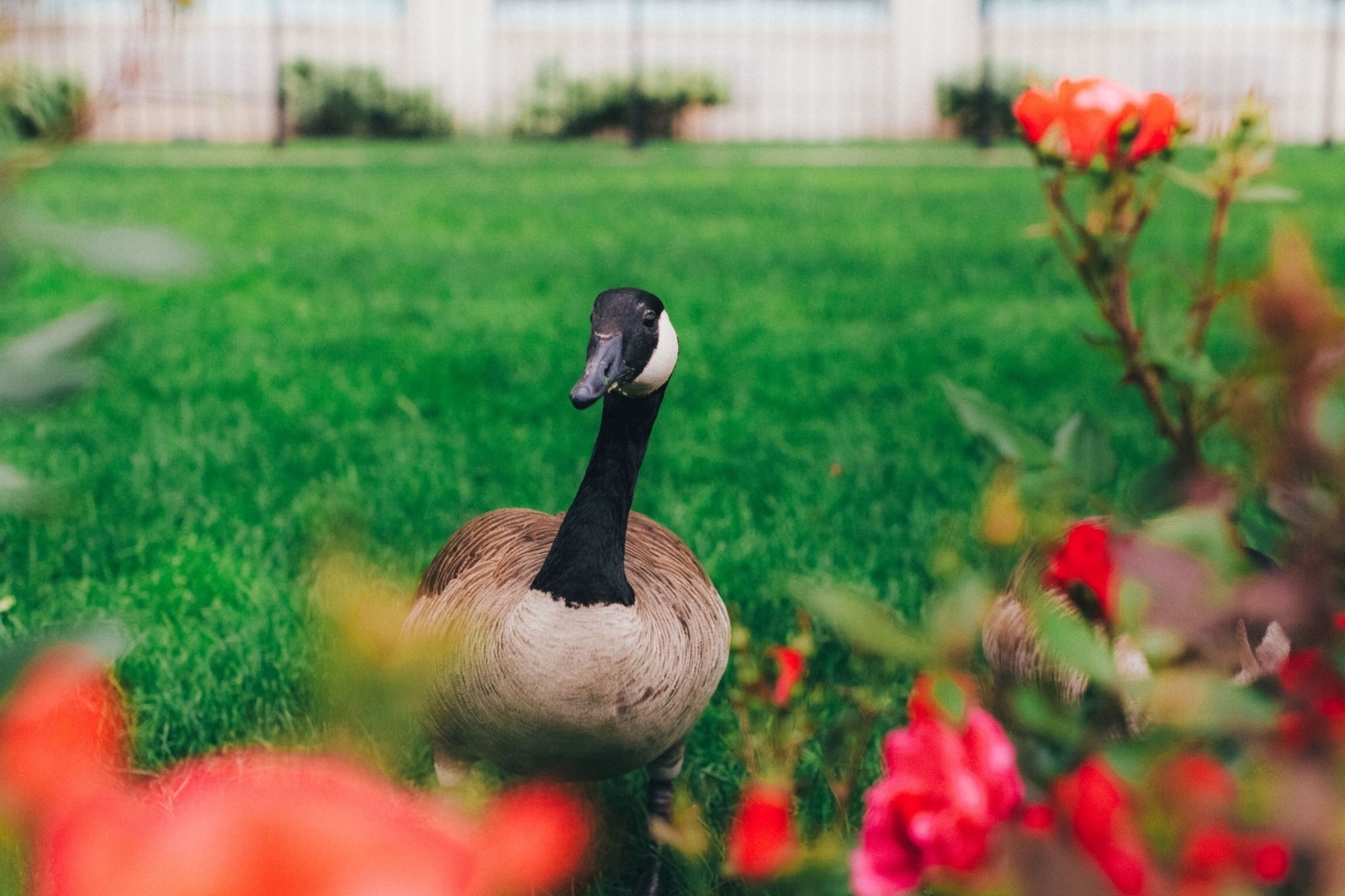Wild Warwick: Geese
All of us, even newly hatched freshers, will have met our famous feathered friends on campus by now. I write, of course, of the geese! Whether you fear them or feed them, if you’ve studied at Warwick you won’t forget them. I found that they can be intimidating and I was ready to fend them off with my umbrella at first but after spending a year on campus I understand them a bit better and have come to enjoy their dramatic honking.
The honking can become quite a cacophony in spring as they sort out their territories and temporarily turn the lakes into a lawless version of Love Island but you can console yourself by thinking about all the beeping goslings you can top up your Instagram feed within a few weeks’ time. It is also true that it is especially important not to mess with the geese at this time but you can still get close to the chicks by being patient, letting the geese approach you, and not making any sudden moves. If a goose does act aggressive, the best thing to do is to maintain eye contact and move away slowly.
I found that they can be intimidating and I was ready to fend them off with my umbrella at first but after spending a year on campus I understand them a bit better and have come to enjoy their dramatic honking

Image: Betty Sands

Image: Betty Sands
People sometimes throw bread and vegetables to the birds but I hope you won’t as it can cause some health issues like the lovely sounding but painful looking ‘angel wing’. Perhaps counterintuitively, too much nutrition when the birds are growing can make the wing grow faster than the muscles that support them and they can end up permanently unable to fly. Instead, they are much better off eating grass, pondweed, small fish, and bugs.
You may not have noticed that there are two species of geese on our lakes; the black and white Canada geese (Branta canadensis) and the brown Greylag geese (Anser anser) with orange beaks. Both live for around 20 years in the wild and sometimes up to 40 years in captivity. Geese are socially monogamous which means that they raise their young with the same partner throughout their long lives while occasionally having affairs. Canada geese can fly up to 1,500 miles in a day, which is roughly the same distance as from here to Marrakech, although our avian campus inhabitants seem to prefer to stay with us all year. This ability to migrate means that they are found across the Northern Hemisphere and were introduced to the UK from North America. Greylag geese are more similar to domestic geese and were used to study imprinting as their chicks will instinctually follow the first moving stimulus they see. As birds are the descendants of dinosaurs, this is the closest you can come to becoming the ‘mother of dragons’.
Geese are socially monogamous which means that they raise their young with the same partner throughout their long lives while occasionally having affairs
Geese are good at impressive threatening displays of hissing and beating their wings but they rarely attack. This is why they make good guard animals. Geese have been used as guard ‘dogs’ in various places including farms in Germany, a police station in China, and a whisky distillery in Scotland. I hope that you will come to like our resident geese or at least find them more interesting.

Comments